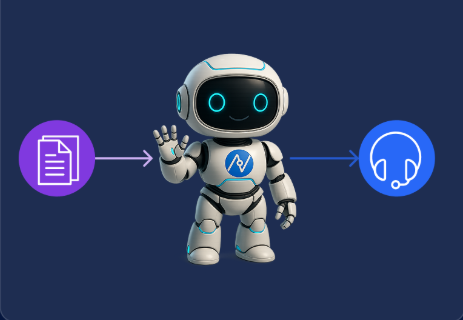 AI
AI
 AI
AI
 AI
AI
Service intelligence startup Neuron7 Inc. said today it has come up with a solution to solve the reliability challenges that prevent enterprises from adopting artificial intelligence agents. That solution is Neuro, which launched today.
The company described Neuro as a next-generation AI agent designed specifically for service and support environments that combines deterministic algorithms with autonomous reasoning to achieve far greater accuracy.
Neuron7 caters to the rather complex world of services and repairs with highly specialized AI agents that leverage popular open-source large language models such as Meta Platforms Inc.’s Llama 4. These models are fed vast amounts of customer data, such as their knowledge bases, product repair manuals, technical documentation and so on.
Then, when customers have a problem – for instance if an ATM machine is broken and needs to be repaired – they can ask its AI agent to diagnose what the problem is. The agent will provide a complete breakdown of the issue to the technician sent out to fix the machine, ensure the technician has the correct parts they need, and provide step-by-step instructions on how to repair it.
The startup used to rely on the retrieval-augmented generation technique to feed its agents with customer-specific data, but soon came to recognize that these systems aren’t always accurate. That’s especially true when they need to deal with complex, domain-rich proprietary data that its underlying models have never come across before.
This lack of accuracy is a significant problem. According to Stanford University’s 2025 AI Index Report, most AI models fail at solving logic tasks, even when provably correct solutions exist, limiting their usefulness in situations where precision is essential.
Neuron7 co-founder and Chief Executive Niken Patel said enterprise adoption of agentic AI has stalled and the main reason is “hallucinations,” when AI models generate false information. “Any system that can make up information will fail the end users, and that’s not acceptable for mission-critical services,” he argued.
With Neuro, Patel said, the company is solving the problem of hallucinations once and for all. Neuro combines deterministic recognition of known issues with a probabilistic exploration for complex diagnostics. This ensures it will always deliver consistently accurate, context-aware outputs, he added.
The startup believes this will be a game-changer for agentic AI. It said Neuro is able to autonomously resolve almost any issue when confidence in its outputs is high, quite unlike general-purpose AI assistants, which lack the context required for the service business.
Neuron7 said Neuro marks the beginning of a new generation of highly adaptive and deterministically accurate service intelligence that wasn’t available before. By combining Neuro with innovations such as the Model Context Protocol and Agent-to-Agent collaboration framework, it has built much more powerful AI agents that boast the insights of highly experienced human professionals. In other words, organizations will finally be able to deploy AI agents at large scale, confident in their ability to execute autonomous workflows in a safe and compliant way.
Early adopters of Neuro have seen significant improvements. Translogic Corp., a company that specializes in electronic transmission technology for motorcycles, said it has saved more than 960 warranty hours with three-hour to three-second improvements and resolutions that were 96% accurate. Meanwhile the networking technology firm Ciena Corp. said its Neuro-powered agents were able to resolve customer support issues 46% faster than before.
Patel said this is because of Neuro’s fundamentally different architecture. He explained that it uses deterministic guided fixes for known issues, eliminating any guesswork or problems with hallucinations. And when the resolution path is unknown, it relies on autonomous reasoning to suggest a game plan to fix whatever problem it faces.
“What sets Neuro apart is knowing which mode to use,” Patel explained. “While competitors race to make agents more autonomous, we’re focused on making service resolution more accurate and trusted.”
Support our mission to keep content open and free by engaging with theCUBE community. Join theCUBE’s Alumni Trust Network, where technology leaders connect, share intelligence and create opportunities.
Founded by tech visionaries John Furrier and Dave Vellante, SiliconANGLE Media has built a dynamic ecosystem of industry-leading digital media brands that reach 15+ million elite tech professionals. Our new proprietary theCUBE AI Video Cloud is breaking ground in audience interaction, leveraging theCUBEai.com neural network to help technology companies make data-driven decisions and stay at the forefront of industry conversations.